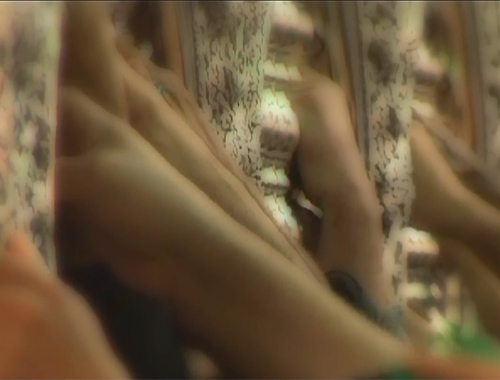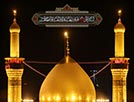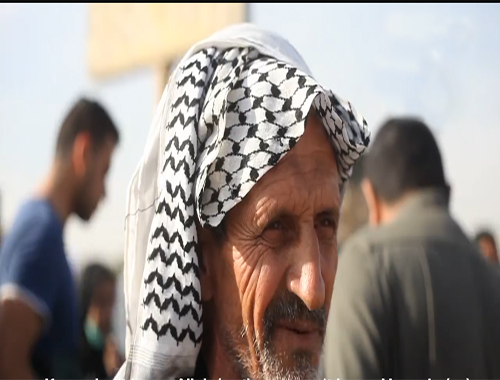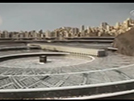verse89
- Details
- Hits: 2358
(89) لا يُؤاخِذُكُمُ اللَّهُ بِاللَّغْوِ فِي أَيْمانِكُمْ وَ لكِنْ يُؤاخِذُكُمْ بِما عَقَّدْتُمُ الْأَيْمانَ فَكَفَّارَتُهُ
إِطْعامُ عَشَرَةِ مَساكِينَ مِنْ أَوْسَطِ ما تُطْعِمُونَ أَهْلِيكُمْ أَوْ كِسْوَتُهُمْ أَوْ تَحْرِيرُ رَقَبَةٍ فَمَنْ لَمْ
يَجِدْ فَصِيامُ ثَلاثَةِ أَيَّامٍ ذلِكَ كَفَّارَةُ أَيْمانِكُمْ إِذا حَلَفْتُمْ وَ احْفَظُوا أَيْمانَكُمْ كَذلِكَ يُبَيِّنُ اللَّهُ لَكُمْ
آياتِهِ لَعَلَّكُمْ تَشْكُرُونَ
89. " Allah does not call you to account for your vain (unintentional)oaths, but he calls you to account for what you have pledged solemnly. So its atonement is feeding ten paupers with the average ofwhat you feed your own families, or clothing them, or freeing a slave. But whoever does not find (the means to do so),should fast for three days. That is the atonement of your oaths when you pledge. But guard your oaths. Thus Allah makes His Signs clearfor you in order that you might be thankful."
Commentary :
The Atonement of Oaths
In this verse, the general discussion is about the oaths which are taken upon the fields of making the lawful things into unlawful ones, and the like of them. These oaths, from this point of view, are divided into two sorts. At first, it says :
" Allah does not call you to account for your vain (unintentional) oaths, ..."
The objective meaning of `vain oaths', as the commentators and jurisprudents have said, is the oaths that do not aim a definite goal, and those that have not been taken intentionally and decidedly. Besides, the contents of such oaths are against the laws of religion, viz. they are estimated as opposite to the commands of Allah.
The second sort is the oaths which are taken wilfully, intentionally, decidedly, and earnestly. Referring to these kinds of oaths, in the continution of the verse, the Qur'an says :
"... but he calls you to account for what you have pledged solemnly. ..."
And Allah charges you with a duty to fulfill these oaths.
For the validity of an oath, of course, only its being earnest is not enough, but the content of the oath should be a lawful matter, at least. It should also be noted that an oath is not reputable except by the Name of Allah.
Therefore, if someone takes an oath by Allah, it is obligatory to perform it according to his oath. So, if he breaches his pledge, one of the following three atonements is necessary to be performed by the one. At first, it says:
"... So its atonement is feeding ten paupers ..."
Yet, in order that some people do not take this general ordinance so that they think they can give any low and worthless material of food as atonement, the Qur'an clearly explains the quality of this food, saying that it must be:
"... with the average of what you feed your own families, ..."
The second is : to cloth ten needy persons with proper clothing.
"... or clothing them, ..."
The appearance of this verse, of course, indicates that the clothing should be of a sort which normally covers the body.
Yet it can be of various kinds according to the seasons and places in different periods.
To answer to the question that whether, from the point of quality, the minimum material is enough or the average should be observed here, too, as the absoluteness of the verse implies, any sort of clothing can be enough.
The third is:
"... freeing a slave ..."
Sometimes it happens that there may be some persons who are able to fulfil neither of the above two atonements. Therefore, next to stating these ordinances, it says:
"... But whoever does not find (the means to do so), should fast for three days. ..."
After that, as an emphasis, the Qur'an says:
"... That is the atonement of your oaths when you pledge ..."
But, in order that no one might consider that by giving atonement, breaching the proper oaths is not unlawful, it says:
"... But guard your oaths ..."
The purpose or this phrase is that you should be careful not to commit sins by breaching your oaths.
And, finally, at the end of the verse, in order that you might be grateful for these ordinances and commandments, which guarantee the happiness and felicity of both an individual and society, the Qur'an says:
"... Thus Allah makes His Signs clear for you in order thatyou might be thankful."
* * * *


![take advantage of your [present] time](/en/media/com_hwdmediashare/files/99/f5/fb/5293162f4d04afb1ed8da3034e984340.jpg)








